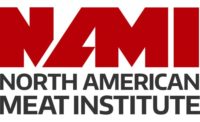Meat Institute: Industry needs ambitious trade policy agenda
Meat Institute submits comments to USTR.

Courtesy of the Meat Institute
In comments submitted to the U.S. Trade Representative for the 2025 National Trade Estimate Report, the Meat Institute called for an ambitious and comprehensive trade policy agenda to be paired with removal of tariff and nontariff barriers to promote the growth and stability of the meat and poultry industry.
“The resilience of the U.S. meat and poultry industry is inextricably linked to U.S. trade policy and attendant initiatives that foster U.S. meat and poultry export growth,” said Julie Anna Potts, Meat Institute president and CEO. “However, the industry’s export potential remains limited by unjustified sanitary barriers, prohibitive tariffs and tariff rate quotas, and onerous registration and approval requirements for exporting facilities, among other impediments.”
The comments detail the following facts and objectives for an ambitious trade agenda on behalf of the meat and poultry value chain:
- China Continues to Renege on Commitments Made in the U.S.-China Phase One Agreement
- Retaliatory Tariffs Remain on U.S. Meat Exports to China and Must be Discontinued
- Proactive Efforts to Address Foreign Animal Disease are Essential to Preserving Trade and Business Continuity
- Securing Beef Access to Australia Remains Critical
- Removing Ongoing Restrictions on Beef, Addressing Other Emerging Concerns are Necessary to Fully Implement the U.S.-Korea Free Trade Agreement
- Despite Progress, Persistent Regulations Impede U.S. Beef and Pork Exports to Taiwan
- Sustainability Trade Text Should Advance Science, Outcomes-Based Approaches and Should Not Unduly Restrict Meat and Poultry Exports
- Increasing Establishment Registration Requirements Risks Undermining Market Access for U.S. Meat and Poultry Exports
- Beef Imports Support Domestic Production and Ease Supply Chain Pressures
- Precedent-Setting Protections for Common Meat Names Must be Replicated
- Market Diversification Through a Comprehensive Trade Policy Will Help Level the Playing Field for U.S. Meat and Poultry Exporters
“As competitors rapidly expand access through preferential trade agreements to growing and mature markets,” Potts said, “the Meat Institute maintains that targeted efforts to eliminate tariff and non-tariff barriers in key markets must be paired with an ambitious trade policy agenda that advances comprehensive trade agreements, which level the playing field for our exports, set clear standards and rules for trade, and provide predictability for American farmers, ranchers, and meat and poultry companies throughout the supply chain.”
Source: Meat Institute
Looking for a reprint of this article?
From high-res PDFs to custom plaques, order your copy today!



